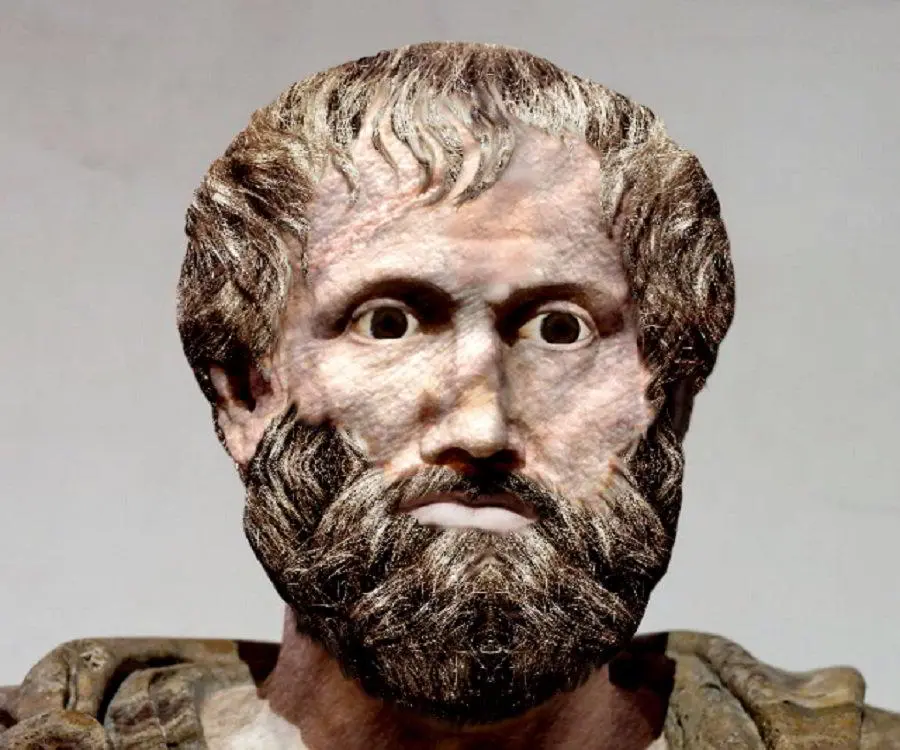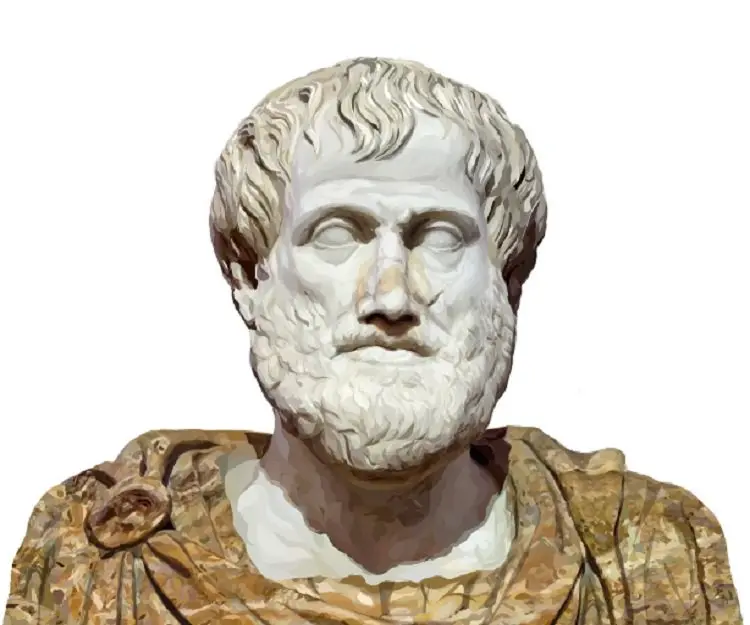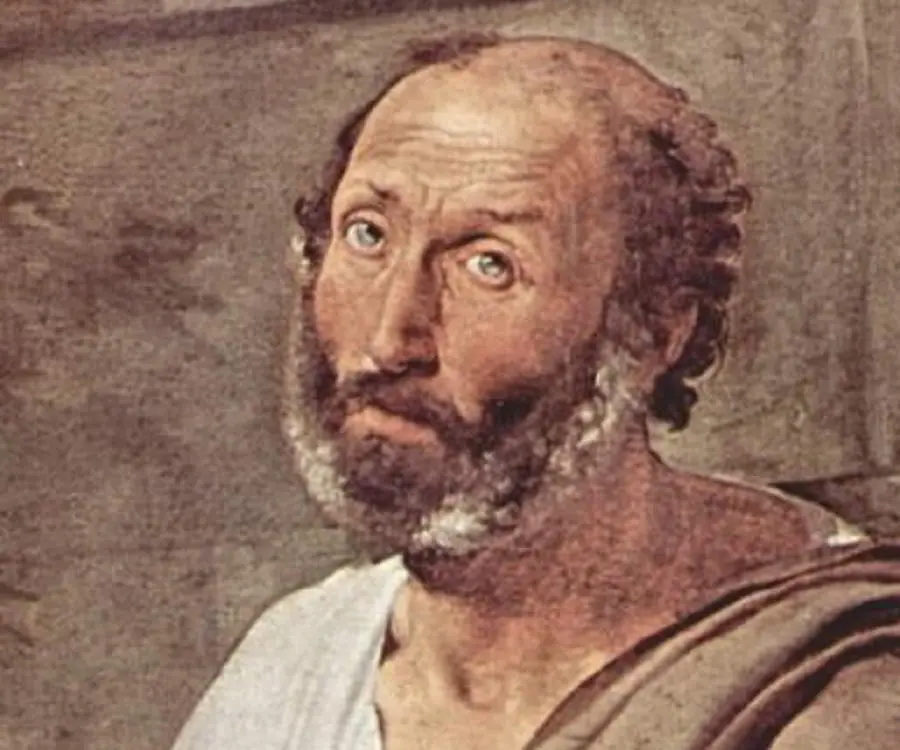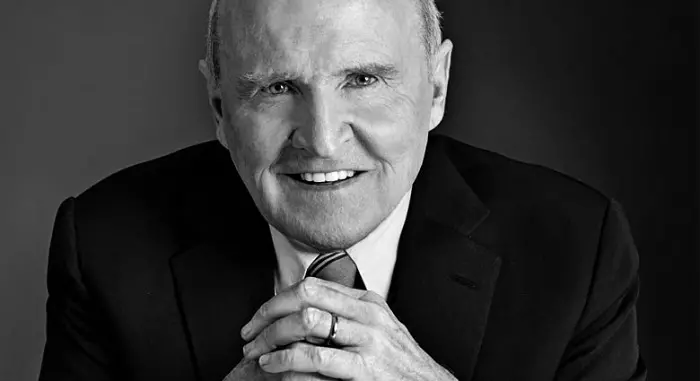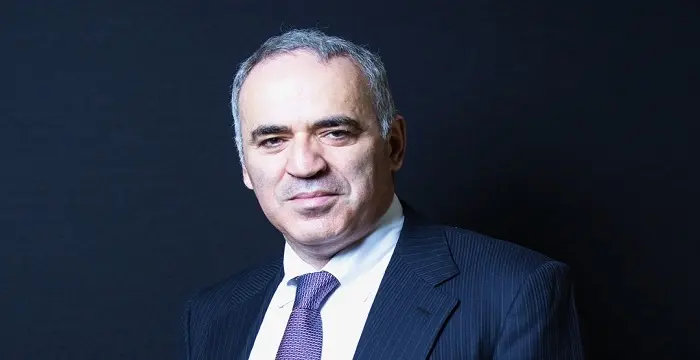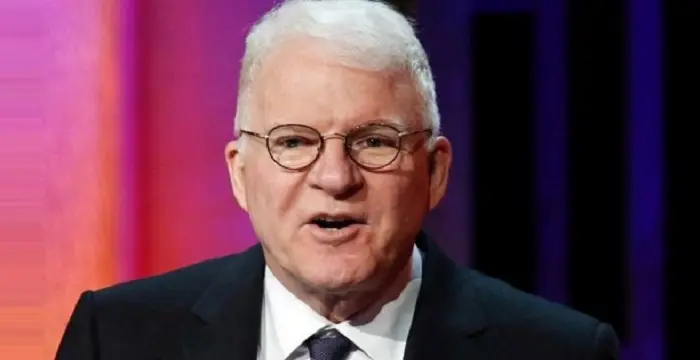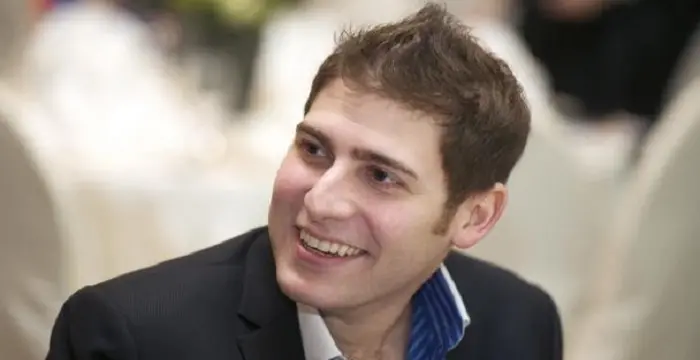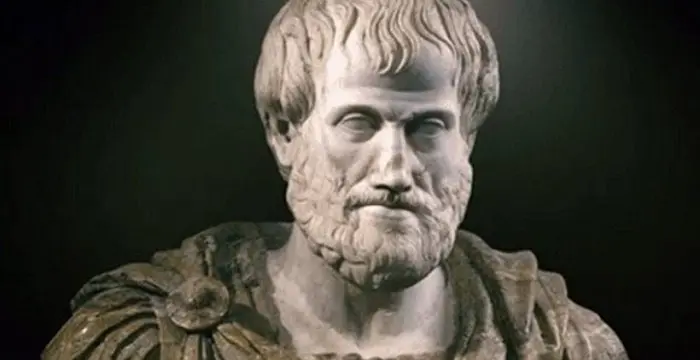
Aristotle - Teacher of Alexander the Great, Timeline and Family
Aristotle's Personal Details
Aristotle was a Greek philosopher and scientist, better known as the teacher of Alexander the Great
| Information | Detail |
|---|---|
| Birthday | 384 BC |
| Nationality | Greek |
| Famous | Intellectuals & Academics, Philosophers, Scientists, ENTJ, Teacher of Alexander the Great |
| Spouses | Herpyllis of Stageira, Pythias |
| Childrens | Pythias the Younger (Daughter); Nicomachus |
| Universities |
|
| Birth Place | Stagira, Greece |
| Gender | Male |
| Father | Nicomachus |
| Born in | Stagira, Greece |
| Famous as | Philosopher, Teacher of Alexander the Great |
| Died at Age | 62 |
Aristotle's photo
Who is Aristotle?
Aristotle was a Greek philosopher and scientist, better known as the teacher of Alexander the Great. He was a student of Plato and is considered an important figure in Western Philosophy. Famous for his writings on physics, metaphysics, poetry, theater, music, logic, rhetoric, linguistics, politics, government, ethics, biology, and zoology, he is considered much ahead of his time. His writings constitute the first comprehensive system of Western philosophy which includes views about morality and aesthetics, logic and science, politics and metaphysics. This system became the supporting pillar of both Islamic and Christian scholastic thought. It is even said that he was perhaps the last man who had the knowledge of all the known fields at that time. His intellectual knowledge ranged from every known field of science and arts of that era. His writing includes work in physics, chemistry, biology, zoology, botany, psychology, political theory, logic, metaphysics, history, literary theory and rhetoric. One of his greatest achievements was formulating a finished system also known as Aristotelian syllogistic. His other significant contribution was towards the development of zoology. It is true that Aristotle’s zoology is now obsolete but his work and contribution was unchallenged till the 19th century. His contribution towards almost all subjects on earth and its influence makes him one of the most famous and top personalities of all time.
// Famous ENTJ
Jack Welch
Jack Welch is an American business executive famous for serving as the CEO of General Electric. This biography of Jack Welch provides detailed information about his childhood, life, achievements, works & timeline.
Garry Kasparov
Garry Kasparov is a Russian chess Grandmaster considered by many to be the greatest chess player of all time. This biography of Garry Kasparov provides detailed information about his childhood, life, achievements, works & timeline.
Steve Martin
Steve Martin is a multiple award winning American comedian, actor and writer. This biography of Steve Martin provides detailed information about his childhood, life, achievements, works & timeline
Childhood & Early Life
Aristotle was born in Stagira, Chalcidice, which is approximately 55km east of Thessaloniki, in 384 B.C. His father Nicomachus named him Aristole, which means “the best purpose”. His father served as a personal physician to King Amyntas of Macedon.
Though not much information is available about his childhood, sources throw light on the fact that he spent time in the Macedonian palace and from here he connected with the Macedonian monarchy.
Being a physician’s son, he was inspired to his father’s scientific work but didn’t show much interest in medicine.
When he turned 18, he shifted to Athens to pursue his education at Plato’s Academy. He left Athens somewhere in 348-347 B.C, spending almost 20 years in the city.
The traditional stories say that he left Athens as he was displeased with the Academy’s direction when Plato's nephew Speusippus took over the control of the academy after Plato’s death but it is also said that he feared anti-Macedonian sentiments and must have left before the death of Plato.
Thereafter, he moved to the court of his friend Hermias of Atarneus in Asia Minor along with his friend Xenocrates. He then travelled to the island of Lesbos accompanied by Theophrastus where they did in-depth analysis of zoology and botany of the island.
In 343 B.C after the death of Hermias, Philip II of Macedon invited him to become tutor of his son, Alexander.
Career
Aristole became the head of royal academy of Marcedon. Here he became a tutor not only to Alexander but gave lessons to two other future kings - Cassander and Ptolemy - as well. In his role as tutor to Alexander, he encouraged him to conquer east.
In 335 B.C he returned to Athens where he established his own school named Lyceum. For next twelve years he taught various courses at his school.
There came a time when the relationship of Alexander and Aristotle became estranged. This was probably due to Alexander’s relationship with Persia. Though there is little evidence, yet many believed that Aristotle played a role in Alexander’s death.
After Alexander’s death, anti-Macedonian sentiment in Athens flared. In 322 B.C Eurymedon the Hierophant castigated him for not holding the gods in honor and Aristotle fled to Chalcis, his mother’s family estate.
Thoughts & Contributions
Aristotle is believed to have put together his thoughts during 335-323 B.C. He wrote a number of dialogues in this period but unfortunately only fragments of these pieces have survived which are in the form of treatise. These were not intended for wide publication and were rather meant to be used for lectures to students. Poetics, Metaphysics, Politics, Physics, De Anima and Nicomachean Ethics are considered to be his most important treatise.
He not only studied almost every subject but also made noteworthy contributions to many of them. Under physical science, Aristotle studied and wrote on astronomy, anatomy, embryology, geology, geography, meteorology, zoology and physics while in philosophy, he wrote on ethics, aesthetics government, politics, metaphysics, economics, rhetoric, psychology and theology. In addition to all the above, he also studied literature, poetry and customs of various countries.
Aristotle studied and wrote on numerous subjects and topics but unfortunately only one third of his original writings survived. The lost writings include poetry, letters, dialogues and essays all written in Platonic manner. Most of his literary works are known to the world by the writing of Diogenes Laertius and others.
He has been given credit for being the earliest one to study formal logic.
Contributions to Philosophy
Just like his teacher Plato, his philosophy also aims at universe but his ontology finds the universal in particular things, thus his epistemology is based on the study of specific phenomena and it rises to the knowledge of essence.
He also discussed how information can be drawn about objects through deduction and inferences. It was his theory of deduction that was shaped into “Syllogism” by modern philosophers. The pairs of propositions were termed as “Contraries” by him. Syllogism is a logical argument in which the inference of the conclusion is drawn from two or more other premises of a certain form. This was explained by him in his work “Prior Analytics” where he defined the main components of reasoning through exclusive and inclusive relationships. These were in later years shown through Venn Diagrams.
His philosophy not just provided us with a system of reasoning but it was also related to ethics. He had described a “moral code of conduct” what he referred to as “good living” in Nichomachean Ethics.
He also talked about Practical Philosophy where he considered ethics to be a part of practical rather than theoretical study. His work titled “Politics”, threw light on the city. According to him city is a natural community. “Man is by nature a political animal” is what was stated by him.
He has been given credit for being the earliest one to study formal logic. The famous philosopher Kant said in his the Critique of Pure Reason that Aristotle’s theory of logic formed the basis of deductive inference.
Contributions to Science
Though he can’t be termed as a scientist by today’s definition but science was of one of the spheres that he extensively researched and studied especially during his stay at Lyceum. His belief was that interaction with physical objects helps in gaining knowledge.
He also conducted research in biology. He classified animals into species on the basis of blood. Animals with red blood were majorly vertebrates and bloodless were termed as cephalopods. There was relative inaccuracy in this hypothesis yet was regarded as the standard system for many years.
He closely examined marine biology as well. He closely examined the anatomy of marine beings through dissection. It is interesting to note here that unlike his biological classifications, his observations on marine life are quite accurate.
His treatise “Meteorology” provides evidence that he also studied earth sciences. By meteorology, he simply didn’t simply mean the study of weather. It also included extensive study about water cycle, natural disasters, astrological events etc.
Contributions to Psychology
Many scholars consider Aristotle as the true father of psychology, since he is responsible for the theoretical and philosophical framework that contributed to psychology's earliest beginnings.
His book, De Anima (On the Soul), is also considered as the first book on psychology.
He was concerned with the relation between the psychological processes and the underlying physiological phenomenon.
He suggested that the body and the mind exist as facets of the same being, and the mind is simply one of the body's functions.
He postulated that intellect consists of two parts: passive intellect and active intellect.
According to him music, epic poetry, comedy, tragedy etc were imitative and varied in imitation by medium, manner or object. His belief was that imitation was a natural part of humans and served as one of the main advantages of mankind over animals.
Major Works
Aristotle wrote around 200 works and most of them were in the form of notes and drafts. These works comprise of dialogues, records of scientific observations and systematic works. These works were looked after by his student Theophrastus and then Neleus
His major works include Rhetoric, Eudemus (On the Soul), on philosophy, on Alexander, on Sophistes, on justice, on wealth, on prayer and on education.
Poetics, Metaphysics, Politics, Physics, De Anima and Nicomachean Ethics are considered to be his most important treatise.
Aristotle’s work “Poetics” comprised of two books - one was on tragedy and the other on comedy.
Personal Life & Legacy
During his stay in Asia Minor, Aristotle married Pythias, who is said to be the niece or adoptive daughter of Hermias. A daughter was born to the couple whom they named Pythias.
After the death of his wife Pythias, he tied the knot again with Herpyllis of Stageira who bore him a son, whom he named after his father, Nicomachus.
According to the Suda (a 10th-century Byzantine encyclopedia of the ancient Mediterranean world), Aristotle had an erotic relationship with Palaephatus.
He breathed his last in 322 B.C in Euboea due to natural causes. He named Antipater (his student) as the chief executor. He wrote a will in which he desired to be buried next to his wife.
Trivia
More than 2300 years have passed yet Aristotle remains to be one of the most influential people ever born. His contribution can be seen in almost every field of human knowledge that then existed. He has also been the founder of many new fields.
He was the one who founded formal logic and was also a pioneer in the study of zoology.
Theophrastus, his successor at Lyceum, wrote a number of books on botany which were considered the basis of botany till middle ages. Few names of plants mentioned by him still survived to modern times. From a modest beginning, Lyceum grew to be a Peripatetic school. The other notable students from his Lyceum were Aristoxenus, Dicaearchus, Demetrius of Phalerum, Eudemos of Rhodes, Harpalus, Hephaestion, Meno, Mnason of Phocis, and Nicomachus.
His influence on Alexander cannot be ignored. It was because of his influence on Alexander that he used to carry large group of botanists, zoologists and researchers along with him on his expeditions.
Aristotle also influenced Byzantine scholars, Islamic theologians, and Western Christian theologians, leaving future scientists, philosophers and thinkers indebted.
He was also a collector of proverbs, riddles and folklore and his school especially studied riddles of Delphic Oracle and the fables of Aesop.
Top 10 Facts You Did Not Know About Aristotle
He is credited to be the first genuine scientist in history by the Encyclopædia Britannica.
Aristotle was well known among medieval Muslim intellectuals and was revered as "The First Teacher".
Aristotle has been accused of misogyny and sexism by scholars of feminist metaphysics.
It is believed that ‘The Nicomachen Ethics’, a compilation of Aristotle’s lecture notes, is named after his son who died young in a battle.
He was a geocentrist who believed that the earth is the centre of the universe.
He gave more accurate theories on some optical concepts than other philosophers of his day.
Aristotle distinguished about 500 species of birds, mammals and fishes, and his classification of living things contains some elements which still existed in the 19th century.
In his treatise ‘On the Soul’, he proposed three kinds of souls: the vegetative soul, the sensitive soul, and the rational soul.
Aristotle is considered to be the founder of formal logic.
He mentored several brilliant young minds, many of whom including Aristoxenus, Dicaearchus, Demetrius of Phalerum, Mnason of Phocis, Nicomachus, and Theophrastus went on to become great thinkers in their own rights.
// Famous Philosophers
Martin Buber
One of the greatest philosophers to have ever walked on earth, Martin Buber contributions to philosophy is a long-standing one. Explore all about his profile, childhood, life and timeline here.
Lao Tzu (Laozi)
Lao Tzu was a legendary Chinese philosopher who wrote the important “Daodejing”. This biography profiles his childhood, life, career, achievements and timeline.
Alan Watts
Alan Watts was a famous British philosopher known for his Zen teachings and interpretations of Eastern philosophy. Read more about this great philosopher in the following article.
Aristotle biography timelines
- // 384 BCAristotle was born in Stagira, Chalcidice, which is approximately 55km east of Thessaloniki, in 384 B.C. His father Nicomachus named him Aristole, which means “the best purpose”. His father served as a personal physician to King Amyntas of Macedon.
- // 348 BC To 347 BCWhen he turned 18, he shifted to Athens to pursue his education at Plato’s Academy. He left Athens somewhere in 348-347 B.C, spending almost 20 years in the city.
- // 343 BCIn 343 B.C after the death of Hermias, Philip II of Macedon invited him to become tutor of his son, Alexander.
- // 335 BCIn 335 B.C he returned to Athens where he established his own school named Lyceum. For next twelve years he taught various courses at his school.
- // 335 BC To 323 BCAristotle is believed to have put together his thoughts during 335-323 B.C. He wrote a number of dialogues in this period but unfortunately only fragments of these pieces have survived which are in the form of treatise. These were not intended for wide publication and were rather meant to be used for lectures to students. Poetics, Metaphysics, Politics, Physics, De Anima and Nicomachean Ethics are considered to be his most important treatise.
- // 322 BCAfter Alexander’s death, anti-Macedonian sentiment in Athens flared. In 322 B.C Eurymedon the Hierophant castigated him for not holding the gods in honor and Aristotle fled to Chalcis, his mother’s family estate.
- // 322 BCHe breathed his last in 322 B.C in Euboea due to natural causes. He named Antipater (his student) as the chief executor. He wrote a will in which he desired to be buried next to his wife.
// Famous Scientists
Juliane Koepcke
Juliane Koepcke is a German-Peruvian biologist, who was the lone survivor among the 92 passengers and crew of the ill-fated LANSA Flight 508 that crashed in the Peruvian rainforest on 24 December 1971. Know more about her life in this biography.
Henry Cavendish
Henry Cavendish was a theoretical chemist and physicist, renowned for discovery of hydrogen and calculation of the mass of earth. To know more about his childhood, profile, timeline and career read on
Konstantin Tsiolkovsky
Konstantin Tsiolkovsky was a Russian rocket scientist and a pioneer of astronautics. This biography provides detailed information about his childhood, family, personal life, career, achievements, etc.
Gabe Newell
Gabe Newell is an American computer programmer and businessman, best known as the co-founder of ‘Valve Corporation.’ This biography provides detailed information about his childhood, family, personal life, career, etc.
Grigori Perelman
Grigori Perelman is a Russian mathematician who is best known for his contributions to Riemannian geometry and geometric topology. Check out this biography to know about his childhood, family life, achievements and fun facts about him.
Eduardo Saverin
Eduardo Luiz Saverin is a Brazilian internet entrepreneur and investor. This biography profiles his childhood, life, career, achievements, and timeline
Aristotle's FAQ
When was Aristotle died?
Aristotle was died at 2020-04-14
Where was Aristotle died?
Aristotle was died in Chalcis
Which age was Aristotle died?
Aristotle was died at age 62
Where is Aristotle's birth place?
Aristotle was born in Stagira, Greece
What is Aristotle nationalities?
Aristotle's nationalities is Greek
Who is Aristotle spouses?
Aristotle's spouses is Herpyllis of Stageira, Pythias
Who is Aristotle childrens?
Aristotle's childrens is Pythias the Younger (Daughter); Nicomachus
What was Aristotle universities?
Aristotle studied at Platonic Academy (367 BC – 347 BC)
Who is Aristotle's father?
Aristotle's father is Nicomachus
How famous is Aristotle?
Aristotle is famouse as Philosopher, Teacher of Alexander the Great
